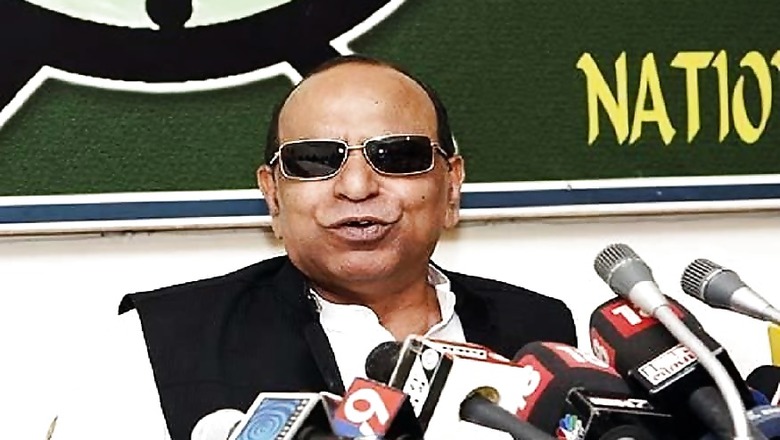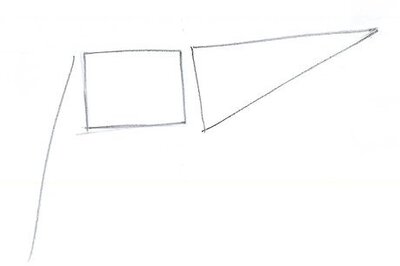
views
Devi Prasad Tripathi’s pupils kept shifting due to his acute shortsightedness but the focus of his politics did not waver. Though he had moved politically from the Left to the Congress and then to the Nationalist Congress Party (NCP), that did not have too much of an impact on his basic engagements with life. He remained as steadfastly committed to the causes that he had learnt to champion in the early days of his Left activism in his undergraduate days in Allahabad University.
His commitments were not greatly different from the engagements of those who had grown up hearing the stories of the struggle for freedom and had in their undergraduate days been swayed by the ideals that had moved the youth of the 1970s: anti-imperialism, the dream of a world free of exploitation and hunger, and an India that was inclusive, secular, equitable and democratic.
These were the values and ideals that permeated the struggle for freedom and defined the idea of modern India. It were these values that became the mainstay of his political activism in Jawaharlal Nehru University, as president of the students’ union (JNUSU) and through his long prison term during the Emergency as a Maintenance of Internal Security Act (MISA) detainee.
These are the very values and ideas that are currently being challenged and attacked by those whose absolute lack of vision, if allowed to succeed, will lead us into utter and absolute darkness. It is this gloomy darkness of vision and intellect that is trying to engulf the very centres of knowledge and enquiry like Jamia Millia Islamia, Aligarh Muslim University and DPT’s alma mater JNU. The going away of DPT at this moment can, therefore, truly be described as absolutely untimely.
The persona of DPT has to be seen in the context of this inclusive, all-embracing world view that is being systematically threatened by the progeny of those who had tried to destroy the dream of a modern India and are methodically dismantling the India that nurtured people like him.
DPT’s love for Faiz, Firaq and Ghalib, Muktibodh, Nagarjun and Nirala lived in perfect harmony with his love for Sanskrit: not only the Sanskrit of the ritual, because that would not be a surprise in a Brahmin, but also in literary Sanskrit. He was equally at ease in English and in Awadhi, Bangla, and a few more he appreciated, and in his conversations, and more so in his speeches, quoted all of these poets and writers as fluently as he quoted Octavio Paz, Allende and Márquez.
He occasionally wrote poetry and one of his compositions was a ballad about the peasant and workers’ struggles in the Bundelkhandi folk form Aalha. He sang it with much gusto while keeping beat with his fingers on a tabletop. Every time he sang, he added one more struggle and he was doing it from memory.
The number of poets, writers, filmmakers of Urdu, Hindi, Bangla, Marathi and others that he knew personally and kept in regular touch with, not only with their creative output but also with their lives and their works was enough to fill every day of one’s entire life. But it was not enough, not in the case of DPT. Outside the charmed circle of the literati was his fraternity of JNU, where he kept track of the lives, careers, marriages, heartbreaks and much else of hundreds. Beyond these circles, and at times overlapping them, there were his political contacts, not only in the parties that he had been in, but also in others where many treated him as a mentor, adviser and a sane counsel, in India, in Nepal, in Mauritius and elsewhere. And then there were the people from his village, schoolmates, friends from Allahabad, and what have you. And he had time for all of them.
The manner in which DPT overcame his visual impairment underscores the idea that “it is not the body but the mind that defines who you are”. I would like to assert this in the backdrop of a cop of Delhi Police recently shoving and pushing a visually impaired JNU student to the ground while yelling at him “Andha hai to yahan kya kar raha hai (If you cannot see, why are you out on the street agitating)?”
This treatment meted out to a JNU student reminds me of an incident from the post-Emergency days. We restarted the activities of the Students’ Federation of India in Delhi University once the Emergency was withdrawn. Both of us began working with the Delhi state committee of the SFI – DPT as the state president and I as the secretary. I was suffering from a terrible skin infection and mostly hobbled around barefoot, while DPT had his visual handicap. The joke was, ‘Ek andha aur ek langda milkar SFI bana rahein hain (A person who cannot see and another who struggles to walk are building SFI).’
If everyone paid heed to the dominant discourse in the country, then the marginalised, the excluded, those suffering physical infirmities, those assigned an inferior status through religion, caste or custom – and this will include women Dalits, LGBTQ and those that do not fit socially accepted definition of the ‘normal’ – will have no scope to come out and explore their full potential.
DPT refused to follow the expected trajectory that society would have laid out for him. He refused to be the ‘poor fellow who can barely see’. He fought the Emergency, led the banned and underground JNUSU, suffered incarceration, was listed by Amnesty International as a ‘prisoner of conscience’, and went on to become an important player in national politics.
DPT was sharp, he was quick-witted and was a great orator. But I was to discover all this only gradually. DPT joined JNU in 1973 and was a hosteller. I had joined in 1972, but was a day scholar. And as most meetings used to happen in the evenings and in the new campus, I actually met him much later.
I must confess that I was not very impressed. His appearance was disheveled, his hair was a tangled mess: he looked scruffy. Just goes to show how horribly wrong first impressions can be. I didn’t know at the time that he had this visual impairment and because he couldn’t see clearly he could only read if he kept the text very close to his eyes – so close that the paper touched his nose. This handicap sharpened his other faculties phenomenally: his memory and his hearing. What he read he never forgot. He identified people with their voices. The speed with which he put together a voice to a name was remarkable and he rarely made a mistake, even if he was hearing that once familiar voice after many years.
The 1978 election campaign became a very high-pitched debate between DPT and Sitaram Yechury of the SFI on one side and Jairus Banaji, Prithviraj Mishra and others from the Students for Revolutionary Socialism. Jairus Banaji’s speeches would include readings from Marxian classics. DPT responded by peppering his speeches with quotations from the same classics, except that he did not read from any book – he quoted from memory, naming the volume, page and paragraph before giving the quotation. Students took down the references and checked them systematically the next day and found all of them to be correct. He remembered thousands of phone numbers; one just had to ask ‘DPT, uska number kya hai (DPT, what’s his number)?’ And he would rattle it off.
During the Emergency he was arrested, and then his eyesight suffered further. He travelled to England for a surgical procedure but it didn’t help him much. After that it was difficult for him to travel independently. But that did not in any way impinge on his mobility. He was constantly travelling and meeting people. His capacity to keep in touch and extend a helping hand was unbelievable. One of our friends died in the hospital and we had a huge bill to pay. Everyone was asked to pitch in. DPT arrived, called me outside the hospital, gave me a packet and left quietly: it was the largest individual contribution.
(Sohail Hashmi is a writer and filmmaker. Views are personal.)
[Based on a conversation with Eram Agha.]














Comments
0 comment